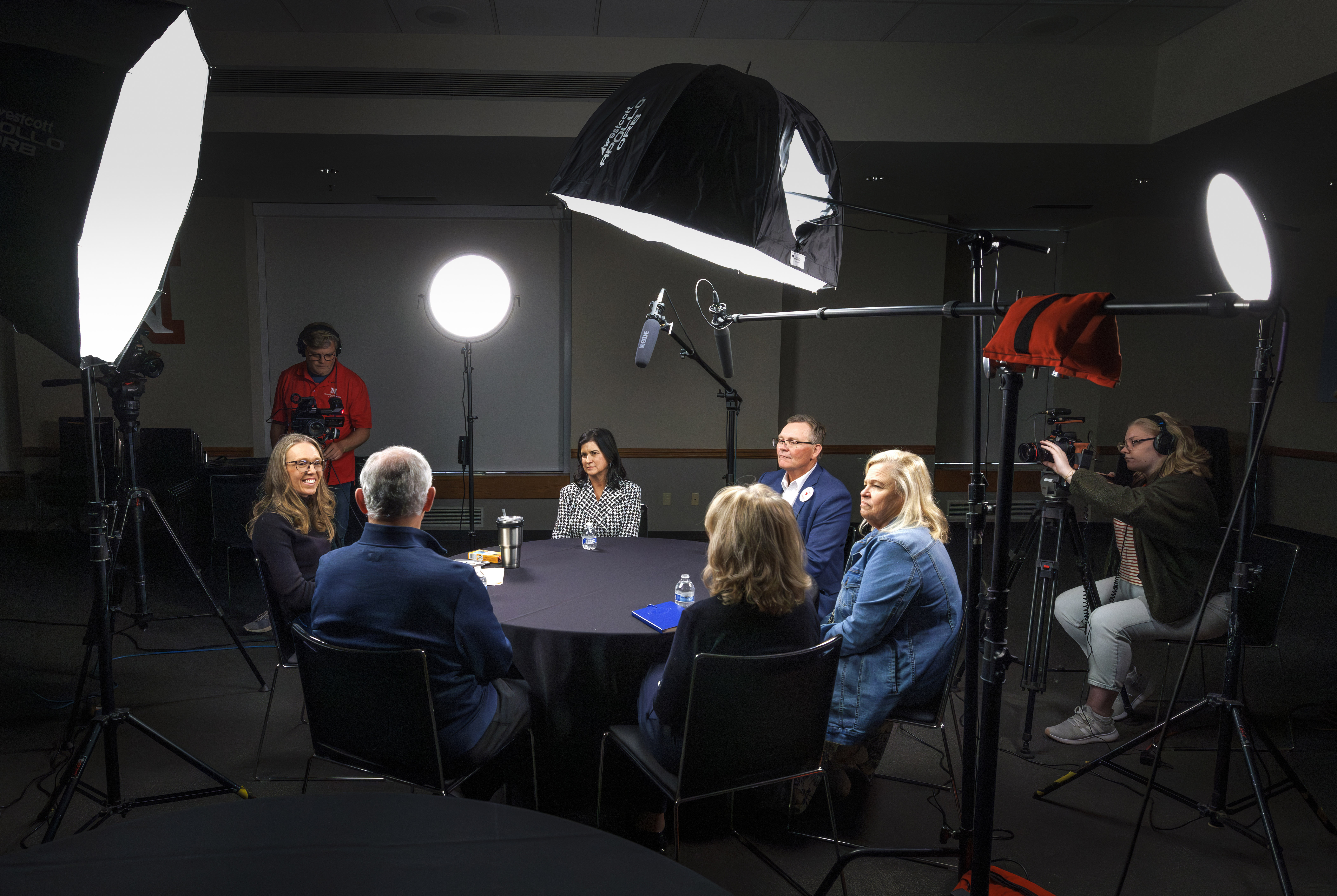
To celebrate its 75th anniversary, the Nebraska Human Resources Institute Leadership Mentoring program invited nearly 35 alumni back to campus to participate in focus groups to discuss how leadership mentoring has impacted their personal and professional lives since graduating from the University of Nebraska–Lincoln.
Organized by Lindsay Hastings, a Clifton professor of mentor research in the Department of Agricultural Leadership, Education and Communication, and four current NHRI students, the day-long event divided alumni into six focus groups, based on graduation date, each aiming to explore how the effects of leadership mentoring have changed them over time.
“This data collection opportunity creates such a wonderful opportunity for us to impact the broader leadership field and understand leadership mentoring,” Hastings said. “Mentoring is considered one of the most potent forms of leadership development because it embeds leadership development within everyday experiences, as opposed to a classroom to do a leadership training.”
Founded in 1949 by William Hall and Donald Clifton, NHRI (then called the Nebraska Human Resources Research Foundation) pioneered positive psychology, the study of success and individual strengths as opposed to mental problems. After examining how well students in the program related to other people, it became clear that the students, at some point in their past, all had individuals in their lives who acted as mentors to help them identify and develop their strengths — thus, the focus on studying the effects of mentor leadership.
University students apply to NHRI as freshmen or sophomores. After acceptance, they are paired with sixth through 12th-grade student leaders from Lincoln Public Schools, acting as mentors during their college careers. The focus of these mentor/mentee relationships, under guidance of a staff adviser, is to help the mentee develop strengths to build positive relationships with others. About 180 university and LPS students are currently participating in the program.
The reunion event brought back university alumni who participated in NHRI during the last 75 years. Combining a question-and-answer format with an open discussion forum, the conversations and activities focused on a central research question: “What are the short- and long-term outcomes of leadership mentoring experiences?” Participants filled out self-evaluation surveys on generativity, the concept of how concerned one is for guiding the next generation.
Sue Bath, a current NHRI board member and participant when she attended the university, said that the program “helps mentors develop their strengths and talents, and that causes the ripple effect in families and their communities. That’s really what’s happening here today. We’re having a think tank, a class, and it’s exciting to think about our future and how we can grow through this reinvestment in each other.”
The guiding questions for the discussions were designed by Hastings; Nick Knopik, a graduate research assistant in the ALEC department; and four undergraduate students who participate in NHRI and joined the project through funding from a UCARE undergraduate research grant — Myah Anderson, Charlie Brockmeier, Carter Goff and Emily Nau.
“I was able to kind of see how NHRI has impacted others, and how they make meaning of that experience,” Nau, a senior actuarial science major in the Jeffrey S. Raikes School of Computer Science and Management, said of participating in the process. “So I was excited to do our official interviews and see how people who were in an NHRI several years ago have felt that impact later on in their life.”
Developing the questions was not simple, said Goff, a senior finance and Clifton management major. The group drafted multiple versions of the questions, testing them out on their peers in NHRI and evaluating them with Hastings and Knopik, to make sure they would receive the data they needed.
In the end, the effort paid off.
“It’s incredible to have the opportunity to learn from [the alumni], and in the same way to have them learn from us and see where the program is now versus when they were here,” said Wyatt Vivier, a current NHRI mentor and mentee as a high schooler. “I love the idea that NHRI can embrace the idea of interconnectedness.”
Hastings said the next step is to analyze the conversations and surveys to come up with teaching models based on mentoring experiences that can be tested and evaluated to discern what differences exist between those who participate in leadership mentoring programs and those who do not.
While the reunion focused on how mentor/mentee relationships can improve the broader field of leadership development, those who participated in the event could not help but take away a few lessons, as well.
“We had such a wide variety of perspectives,” Nau said. “At the end of the day, though, we all came together with the same goal of just having an impact on others and wanting to inspire others.”
Share
News Release Contact(s)
Related Links
Tags
High Resolution Photos








